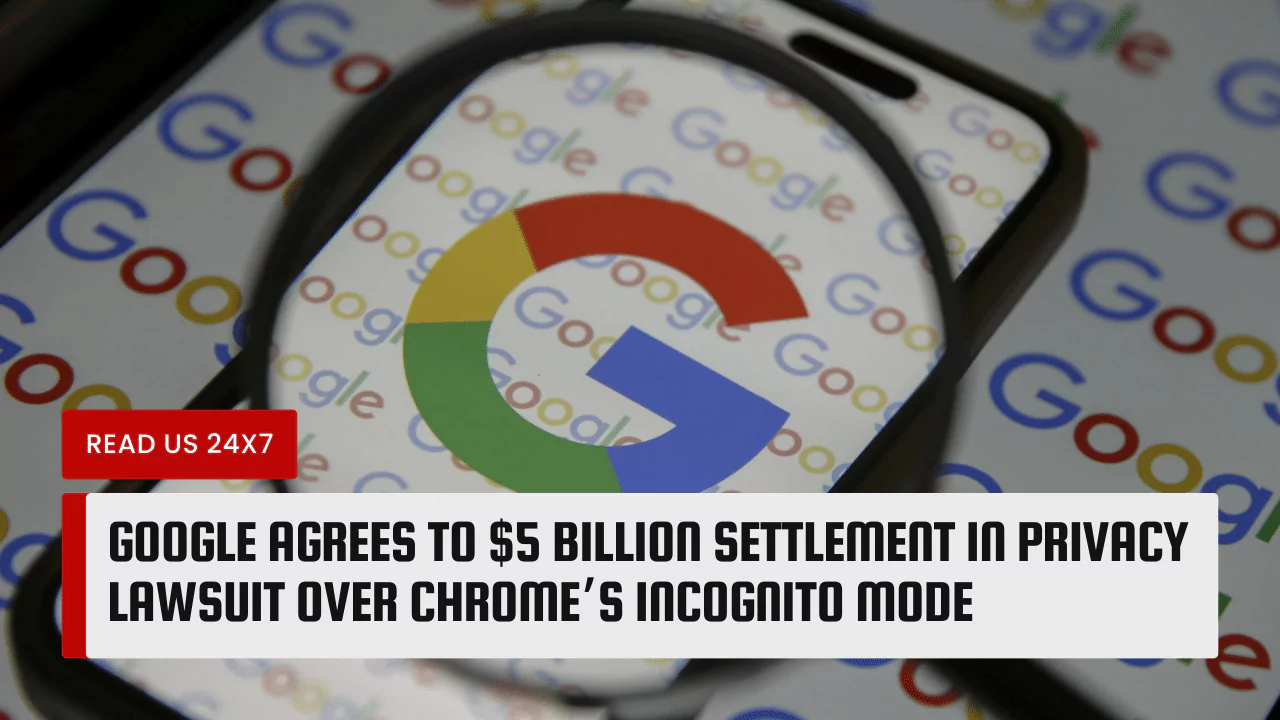Google has agreed to pay $5 billion to settle a class-action lawsuit that accused the company of violating users’ privacy by tracking their online activity even when they used Chrome’s Incognito mode. The settlement, which was announced on Friday, also requires Google to make changes to how it informs users about its data collection practices and to give them more control over their privacy settings.
Background of the Lawsuit
The lawsuit was filed in June 2020 by three plaintiffs who claimed that Google collected information about their browsing habits, location, and personal data through various tools, such as Google Analytics, Google Ad Manager, and website plug-ins, without their consent. They argued that Google’s actions violated the federal wiretap law and the California privacy law, and that they were entitled to at least $5,000 in damages per user.
The plaintiffs also alleged that Google misled users by implying that Incognito mode would prevent any tracking of their online activity. According to Google’s support page, Incognito mode “doesn’t save your browsing history, cookies, and site data, or information entered in forms”, but it also states that “your activity might still be visible to websites you visit, your employer or school, or your internet service provider”. The plaintiffs claimed that this disclaimer was not clear enough and that most users were unaware that Google could still collect their data in Incognito mode.
The lawsuit highlighted the impact of Google’s data collection on consumer privacy, especially in light of the increasing use of online services during the COVID-19 pandemic. The plaintiffs argued that Google’s practices violated their right to browse the web anonymously and exposed them to potential identity theft, fraud, and targeted advertising.
Details of Settlement
The settlement, which is subject to court approval, covers anyone who used Chrome’s Incognito mode between June 1, 2016 and December 31, 2021. Google has agreed to pay $5 billion, which will be distributed among the class members, the plaintiffs’ lawyers, and various privacy-related organizations. The exact amount that each user will receive has not been determined yet, but it is expected to be much lower than the $5,000 that the plaintiffs initially sought.
In addition to the monetary compensation, Google has also agreed to make changes to how it informs users about its data collection practices and to give them more control over their privacy settings. Google will update its support page and other materials to explain more clearly what Incognito mode does and does not do, and to provide links to other privacy tools, such as blocking third-party cookies, using a VPN, or switching to another browser. Google will also implement a new feature that will allow users to opt out of data collection by Google’s tools and plug-ins on websites that they visit in Incognito mode.
Potential Future Legal Battles
The settlement marks one of the largest payouts in a privacy-related lawsuit, but it is not the end of Google’s legal troubles. The company is still facing several other lawsuits and investigations from regulators and consumers over its dominance in the online market and its handling of user data. Some of the ongoing cases include:
- A lawsuit was filed by the U.S. Department of Justice and 11 states in October 2020, accusing Google of abusing its monopoly power in search and advertising to stifle competition and harm consumers.
- A lawsuit was filed by 38 states and territories in December 2020, alleging that Google engaged in anticompetitive conduct to maintain its dominance in search and search advertising and that it harmed users by reducing the quality and diversity of search results.
- A lawsuit was filed by 10 states in December 2020, claiming that Google rigged online ad auctions to favor its own products and services and that it colluded with Facebook to manipulate the market.
- A lawsuit was filed by 30 states and territories in December 2020, challenging Google’s control over the Android operating system and the Google Play Store, and accusing the company of imposing unfair terms on app developers and consumers.
- A lawsuit was filed by the Australian Competition and Consumer Commission in July 2020, alleging that Google misled users about how it collected and used their personal data for targeted advertising.
- A lawsuit filed by the European Commission in June 2017, imposed a record fine of €2.42 billion ($2.9 billion) on Google for favoring its own shopping service over competitors in its search results.
These cases reflect the ongoing scrutiny of tech giants and the importance of protecting user privacy in the digital age. As more people rely on online platforms for communication, entertainment, education, and commerce, the need for transparency, accountability, and choice becomes more urgent. The settlement of the Incognito mode lawsuit may be a step in the right direction, but it is unlikely to be the last word on the matter.


